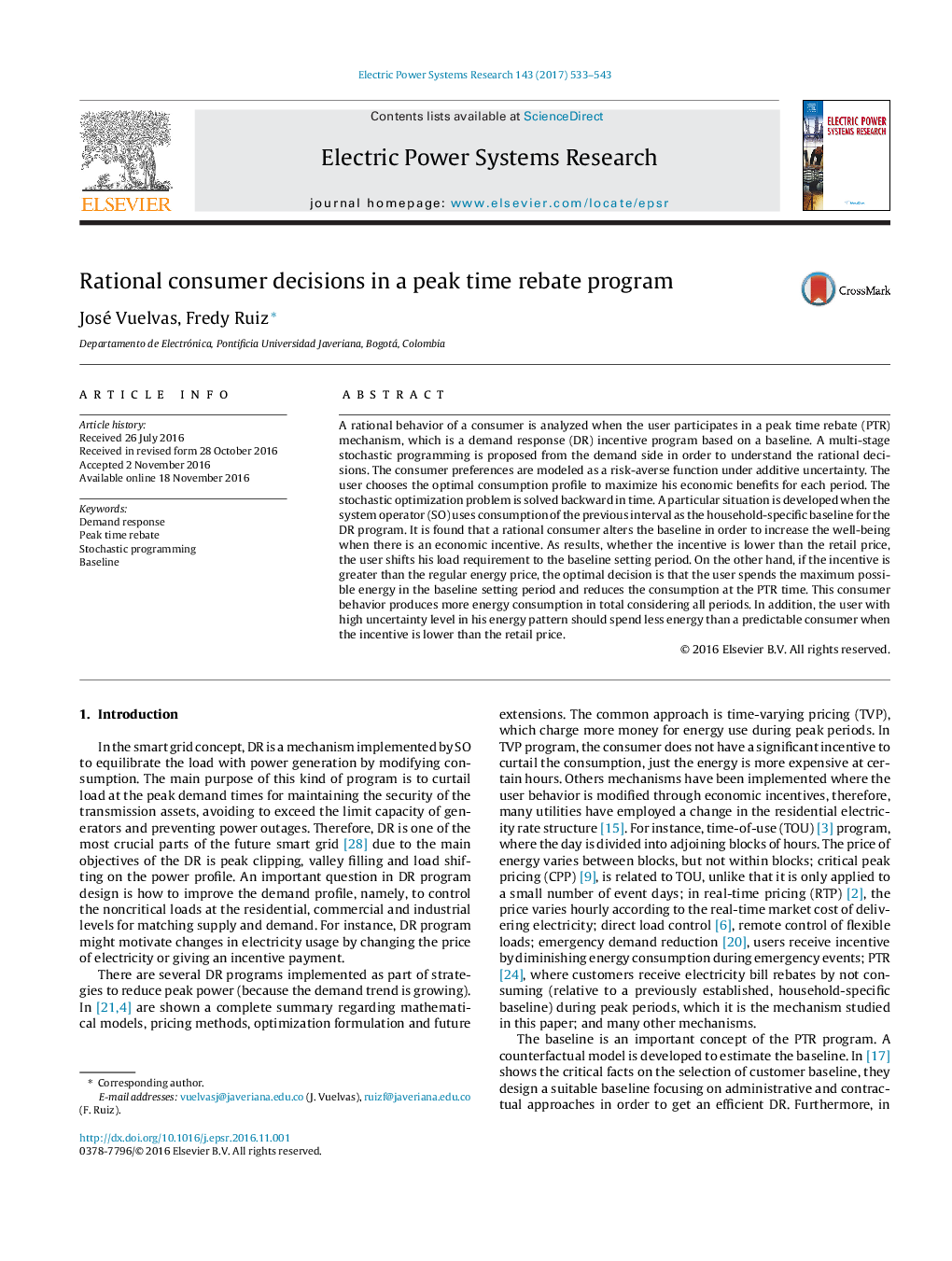| کد مقاله | کد نشریه | سال انتشار | مقاله انگلیسی | نسخه تمام متن |
|---|---|---|---|---|
| 5001258 | 1460870 | 2017 | 11 صفحه PDF | دانلود رایگان |
- A model of rational user behavior in a peak time rebate program is proposed.
- A multi-stage stochastic program is developed to understand rational decisions.
- The model shows that a rational user does not behave as expected in a PTR program.
- The induced behavior is to shift or increase consumption to maximize profit.
- Only a user with high uncertainty in demand reduces his net consumption.
A rational behavior of a consumer is analyzed when the user participates in a peak time rebate (PTR) mechanism, which is a demand response (DR) incentive program based on a baseline. A multi-stage stochastic programming is proposed from the demand side in order to understand the rational decisions. The consumer preferences are modeled as a risk-averse function under additive uncertainty. The user chooses the optimal consumption profile to maximize his economic benefits for each period. The stochastic optimization problem is solved backward in time. A particular situation is developed when the system operator (SO) uses consumption of the previous interval as the household-specific baseline for the DR program. It is found that a rational consumer alters the baseline in order to increase the well-being when there is an economic incentive. As results, whether the incentive is lower than the retail price, the user shifts his load requirement to the baseline setting period. On the other hand, if the incentive is greater than the regular energy price, the optimal decision is that the user spends the maximum possible energy in the baseline setting period and reduces the consumption at the PTR time. This consumer behavior produces more energy consumption in total considering all periods. In addition, the user with high uncertainty level in his energy pattern should spend less energy than a predictable consumer when the incentive is lower than the retail price.
Journal: Electric Power Systems Research - Volume 143, February 2017, Pages 533-543
